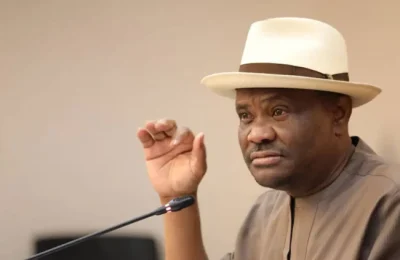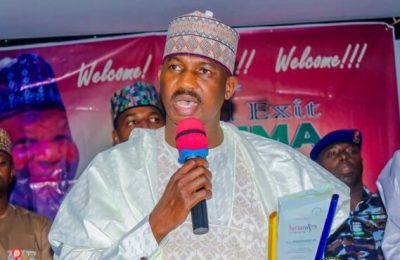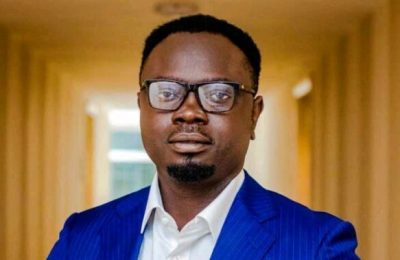Driven by the intention to sustain democracy and to consolidate party dominance, the All Progressives Congress in Kogi in a few days will embark on the uphill task of its primary election in search of Governor Yahaya Bello’s successor after eight years in office.
Consequently, a national focus on the party, the State and on the governor becomes inevitable. This focus is further aggravated by the lone nature of Kogi’s election occasioned by judicial disruptions following the demise of Prince Abubakar Audu and the subsequent emergence of Yahaya Bello in the 2015 elections.
In the last eight years, the party, the State and the governor appear to have accumulated varied reputations-all of which were unified by the presumed desire for economic growth yet limited by the disconnections between the people’s expectations and the democratic dividends delivered.

A national focus on this trio at this time results to critical questions and subtle contemplations with one question being the chief of them all ‘Where will governor Yahaya Bello’s pendulum of support swing to?’
Accepted that the principle of fairness is typically emphasized in party primaries, it is not undemocratic for the governor to support a candidate.
Neutrality is an ideal statutorily reserved for umpires or regulators and demanding same from Yahaya Bello may be somewhat unrealistic considering the governors’ legacies. Having been on the news for many reasons some of which stirred the hornet’s nest, one thing critics agree is Governor Bello’s’ struggle to etch the name of the state in the political turf of national relevance.
A corollary to this is the strategic positioning of the state for negotiation towards a federal presence and same resulted to a number of developments with prospects in the future. Also, Governor Bello’s reputation as a front-line figure in the national arrangements of the party which culminated in his shot at the most coveted seat of the president places him arguably at par with historical figures of the state’s democratic history particularly in the order of Prince Abubakar Audu and Senator A. T Ahmed.

Surmounting the old order and swimming against the tide, Governor Yahaya Bello upon inception as Kogi’s first citizen in 2015, faced unprecedented resistance, limited followership and criticism like no other before him. This was expected consequent upon the fact that his age, political experience and minority tribe contrasted what the state was used to at the time. Upturning the Igala dominance spelt a new dispensation with a promising framework for inclusion and equitable representation of all age categories, tribes and religion-a feat even naysayers admit the governor performed reasonably commendable.
All of these lend credence that an interest in a successor is justified but also places the governor in a difficult situation which will put his knowledge, character and political experience under a test with long-term consequences.
Nancy Pelosi the 52nd speaker of the United States House of Representatives once remarked that ‘choosing a political successor is no easy task, whether you’re an elected official or a leader of a non-profit organisation. It requires a combination of meaningful analysis, clear communication and trust’. This provides a vivid portrayal of Governor Bello’s quagmire and a point of reflection on his next line of action.
Kogi politics and gubernatorial election outcomes have tribe as perhaps its strongest determinant indicator. The Igala dominant population, the Ebira current custody of power and the Okun potential for strategic alliance must be harnessed skillfully to achieve desired result. This result however must be in conformity with the governors’ post-election relevance hence the need for scrutiny. One school of thought argues for an Ebira power custody for sixteen years just as the Igala ethnic extraction had theirs. This is a logical argument which positions a few political office holders with admirable credentials and impressive experience such as Mr Abdulkareem Jamiu, who was applauded for having a friendly disposition and increasing people’s access to the governor, Alhaji Jubril Mommoh, Mr Asiwaju Idris, Mallam Yakubu Okala and a host of other credible options as possible candidates for the governor’s support.
Perhaps, the Igala people should contend for power just like |Yahaya Bello contended for and with a stroke of fate, acquired. Worthy of interrogation is that while this may serve the tribe, to what extent can the governor trust that it will serve the state, preserve his relevance and is a feasible disposition to winning the gubernatorial election considering the Igala population? It is appropriate to wonder if this option is expected to be without recourse to Kogi’s ‘stand-alone’ election in which all hands will be on deck to ensure that the anomalies associated with the 2023 general election is corrected. Bello’s choice of successor is not without consequence on his political future as well as that of the state.
To what extent is this plausible to garner the support of the Okun ethnic group who currently advocate for a shot at the state’s most coveted office; advancing an even more logical instance of a unanimous ‘Emilokan’ considering that the immediate past eight years had an Ebira and the previous had an Igala as governor? To what extent can the governor harness this argument to preserve his legacy, sacrifices and status as the emerging godfather of Kogi politics?
Another school of thought argues that Mr Edward Onoja whose rise to the corridors of power stemmed from his affiliation and long-term relationship with the governor should be the preferred.
The former chief of staff and current deputy governor had a turbulent history resulting from the ‘sacrilegious’ and audacious support for Yahaya Bello over Igala interest since the build-up to the 2015 general elections. Mr Onoja stood unapologetically even in the face of obvious criticism of being a traitor to his people and went further to popularise the ‘Eneomuneme’ ideology. This ideology translates to ‘Someone else is better’ implying that Governor Bello is preferred to any other Igala candidate at the time. It was a case of an anathema in Igala political history and a risk on his political future.
This move however earned him the status of the governor’s ‘Siamese twin’-a position in which the two depicted an inseparable bond and ran the affairs of the state with Yahaya Bello as ‘BoB’, Mr Onoja as ‘Marley’ and the opposition particularly the bulk of the Igala people as ‘The Wailers’. In a matter of years, an unconfirmed clog in the wheel of their relationship was rumoured and political observers saw Mr Onoja’s transition from a Siamese twin to ‘son’ or servant to the governor.
An intense sense of subservience is often noticed in the manner he conducts himself before the governor. A disposition of servanthood, gratitude for every opportunity given and an urgent disposition to credit the governor with every achievement has been the apparent hallmark of the current deputy governor. Only the governor can tell with exactitude if Mr Onoja has fulfilled the demands of loyalty even when political observers assume so.
Worthy of interrogation is whether the ‘Eneomuneme’ version of the Ebira tribe will be extended to Mr Onoja at this juncture. Will the governor compensate Mr Onoja to suggest loyalty is rewarded in the political history he is building? Recognising that the Igala with the numbers, may consider and vote for Mr Onoja whom most presume is driven by a Yahaya Bello Ideology, will the choice of Mr Onoja as a successor be a more strategic one? With the potential offset perceived in the activities of emerging and promising forces such as Alhaji Murtala Yakubu Ajaka, is Mr Onoja better positioned to win the gubernatorial election? Has Mr Onoja demonstrated tribal and religious balance, adequate loyalty to the principal and party and maintain a propensity to garner votes?
In politics, there is a huge difference on what is right, what is fair and what is expedient. APC Muslim-Muslim ticket in the 2023 presidential election though seemingly unfair, is an example of expediency. Political parties first seek to win elections and most times incumbent first seeks to find a loyal successor. This is no small task as even Mohammed Morsi, a professor and former president of Egypt admitted that ‘Politics is most difficult when choosing a successor: you must find the right person to follow you who is able to make their own impact yet will respect the work that you have done’.
The forthcoming APC primaries is as much critical for the party and the state as it is for Governor Yahaya Bello’s political future. One that may see him rise to the status of the new godfather of Kogi politics or simply an eventful phase in the sands of time. Time reveals and this case will not be an exception.
- Akoji Austine Obaje is a lecturer and researcher in Political Communication, writing from the United Kingdom
READ ALSO FROM NIGERIAN TRIBUNE







